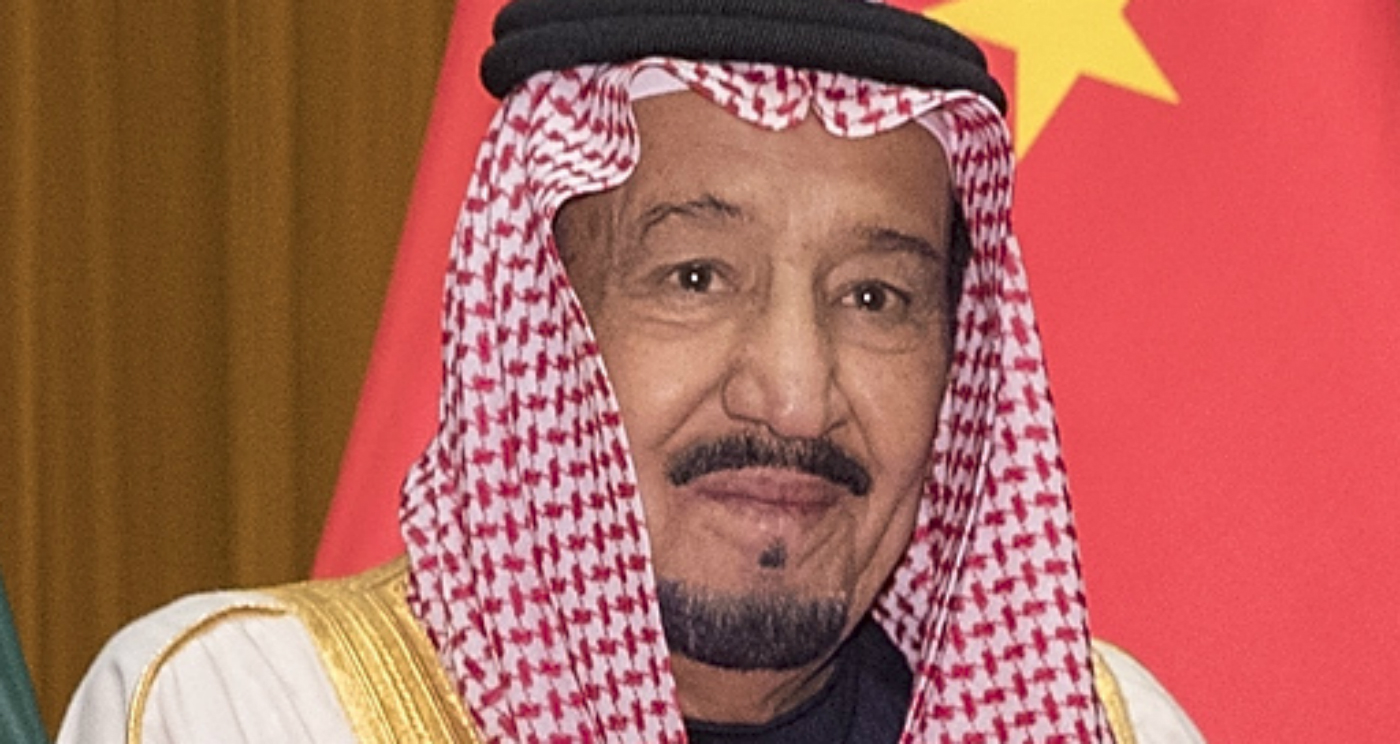Saudi Arabia intercepts Yemeni missile heading for King Salman’s palace
Houthi rebels target Saudi leaders gathered ahead of budget speech

A free daily email with the biggest news stories of the day – and the best features from TheWeek.com
You are now subscribed
Your newsletter sign-up was successful
Saudi Arabia today intercepted a ballistic missile south of Riyadh that Yemen’s Houthi rebels say was aimed at a meeting of Saudi leaders in King Salman’s Al-Yamamah Palace.
Witnesses described seeing a plume of smoke over the capital, Riyadh, at about 10.50am GMT, just before the unveiling of the Saudi budget.
Sky News correspondent Dominic Waghorn spoke of a “huge explosion” and of “people saying that the foundations of the buildings were shaken by the bang”. Saudi officials said there were no injuries or serious damage.
The Week
Escape your echo chamber. Get the facts behind the news, plus analysis from multiple perspectives.

Sign up for The Week's Free Newsletters
From our morning news briefing to a weekly Good News Newsletter, get the best of The Week delivered directly to your inbox.
From our morning news briefing to a weekly Good News Newsletter, get the best of The Week delivered directly to your inbox.
It was the third ballistic missile attack by the Houthis since the beginning of November, says Al Jazeera.
The first, on 4 November, targeted Riyadh international airport and triggered the tightening of a Saudi-led blockade of Yemen, which is already on the verge of famine. Earlier this month, a missile was intercepted en route to the city of Khamis.
A UN human rights spokesman said today that the Saudi-led military coalition in Yemen has killed at least 136 civilians and non-combatants since 6 December, reports Reuters.
Saudi Arabia and the US allege that Iran is arming the Houthi movement, which is fighting Yemeni government forces. UN investigators reached no firm conclusion about whether the missile that landed near Riyadh airport in November came from an Iranian supplier, saying only that it had a “common origin” to some Iranian designs, AFP reports.
A free daily email with the biggest news stories of the day – and the best features from TheWeek.com
If today’s missile is linked more conclusively to Iran, the crisis will deepen. “The concern is this is part of a bigger game going on here that could lead to escalation,” said Waghorn, “and ultimately possibly a war between the Saudis and Iranians.”
-
 The ‘ravenous’ demand for Cornish minerals
The ‘ravenous’ demand for Cornish mineralsUnder the Radar Growing need for critical minerals to power tech has intensified ‘appetite’ for lithium, which could be a ‘huge boon’ for local economy
-
 Why are election experts taking Trump’s midterm threats seriously?
Why are election experts taking Trump’s midterm threats seriously?IN THE SPOTLIGHT As the president muses about polling place deployments and a centralized electoral system aimed at one-party control, lawmakers are taking this administration at its word
-
 ‘Restaurateurs have become millionaires’
‘Restaurateurs have become millionaires’Instant Opinion Opinion, comment and editorials of the day
-
 Epstein files topple law CEO, roil UK government
Epstein files topple law CEO, roil UK governmentSpeed Read Peter Mandelson, Britain’s former ambassador to the US, is caught up in the scandal
-
 Iran and US prepare to meet after skirmishes
Iran and US prepare to meet after skirmishesSpeed Read The incident comes amid heightened tensions in the Middle East
-
 Israel retrieves final hostage’s body from Gaza
Israel retrieves final hostage’s body from GazaSpeed Read The 24-year-old police officer was killed during the initial Hamas attack
-
 China’s Xi targets top general in growing purge
China’s Xi targets top general in growing purgeSpeed Read Zhang Youxia is being investigated over ‘grave violations’ of the law
-
 Panama and Canada are negotiating over a crucial copper mine
Panama and Canada are negotiating over a crucial copper mineIn the Spotlight Panama is set to make a final decision on the mine this summer
-
 Why Greenland’s natural resources are nearly impossible to mine
Why Greenland’s natural resources are nearly impossible to mineThe Explainer The country’s natural landscape makes the task extremely difficult
-
 Iran cuts internet as protests escalate
Iran cuts internet as protests escalateSpeed Reada Government buildings across the country have been set on fire
-
 US nabs ‘shadow’ tanker claimed by Russia
US nabs ‘shadow’ tanker claimed by RussiaSpeed Read The ship was one of two vessels seized by the US military